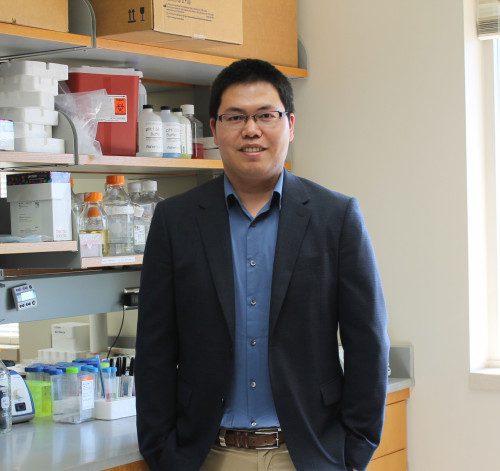23 Nov New approach could push limits of immunotherapy for difficult-to-treat cancers

Quanyin Hu
Cancerous tumors that aren’t candidates for surgery or chemotherapy sometimes respond well to alternatives like immunotherapy, but even cutting-edge cancer treatments that harness the immune system have their limits.
A recent study by researchers at the University of Wisconsin–Madison points toward a potential new approach for pushing the limits of immunotherapy, opening a door to more effective treatment of inoperable tumors and metastatic cancer.
Published in October in the journal Nature Communications, the approach relies on hydrogels or patches, depending on the location and type of the tumor, to deliver a suite of therapeutics that turbocharge the body’s immune response to cancer cells.
Led by Quanyin Hu, a professor in the UW–Madison School of Pharmacy, the research builds on Hu’s previous development of hydrogel drug delivery systems and advances in the understanding of a unique type of cell death called pyroptosis.
Cell death plays an important role in cancer and its treatment. While normal cells eventually die and are replaced by new cells, cancer cells ignore the body’s signals to self-destruct, leading to uncontrolled growth into tumors that can spread around the body.
Enter pyroptosis. Because this form of cell death is so highly inflammatory, scientists believe pyroptosis is an immune response to invading microbes and other pathogens. In recent years, they’ve also shown pyroptosis may be a powerful tool for killing cancer cells. This is because pyroptosis leads cells to expel their contents, including cancer-related antigens that the body’s immune system can then target.
“We are excited about pyroptosis because it can trigger the release of intracellular contents, as well as tumor-associated antigens, and elicit a strong immune reaction,” says Hu.



